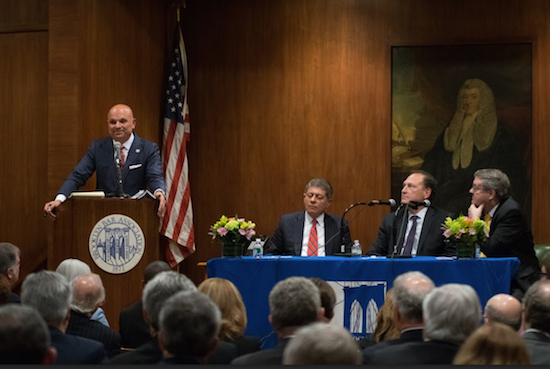Brooklyn Bar Association hosts Justice Alito for a night inside a judge’s life

The Brooklyn Bar Association (BBA) on Wednesday hosted three judges, including U.S. Supreme Court Justice Samuel Alito, for an intimate conversation between the judges and its members.
Before a crowd of nearly 100 BBA members, President Arthur Aidala moderated a conversation between Justice Alito; Hon. Andrew Napolitano, a retired New Jersey Superior Court judge and FOX News senior judicial analyst; and Hon. Mark Dwyer, a judge of the New York Court of Claims and an acting justice of the New York Supreme Court, Criminal Term.
“I watched Judge Napolitano doing this with Judge Antonin Scalia at the Brooklyn Academy of Music, and I thought about doing that. But because I feel that this is such a special place, I wanted to give our members and our supporters the intimate experience in this small room,” Aidala said.

Brooklyn Boro
View MoreNew York City’s most populous borough, Brooklyn, is home to nearly 2.6 million residents. If Brooklyn were an independent city it would be the fourth largest city in the United States. While Brooklyn has become the epitome of ‘cool and hip’ in recent years, for those that were born here, raised families here and improved communities over the years, Brooklyn has never been ‘uncool’.